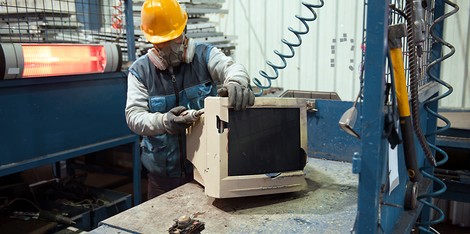Your podcast discovery platform
Curious minds select the most fascinating podcasts from around the world. Discover hand-piqd audio recommendations on your favorite topics.

piqer for: Global finds Health and Sanity Doing Good
Bangalore-based Rashmi Vasudeva's journalism has appeared in many Indian and international publications over the past decade. A features writer with over nine years of experience heading a health and fitness supplement in a mainstream Indian newspaper, her niche areas include health, wellness, fitness, food, nutrition and Indian classical Arts.
Her articles have appeared in various publications including Mint-Wall Street Journal, The Hindu, Deccan Herald (mainstream South Indian newspaper), Smart Life (Health magazine from the Malayala Manorama Group of publications), YourStory (India's media technology platform for entrepreneurs), Avantika (a noir arts and theatre magazine), ZDF (a German public broadcasting company) and others.
In 2006, she was awarded the British Print-Chevening scholarship to pursue a short-term course in new-age journalism at the University of Westminster, U.K. With a double Masters in Globalisation and Media Studies from Aarhus Universitet (Denmark), University of Amsterdam and Swansea University in Wales, U.K., she has also dabbled in academics, travel writing and socio-cultural studies. Mother to a frisky toddler, she hums 'wheels on the bus' while working and keeps a beady eye on the aforementioned toddler's antics.
We Know The Wrong Way To Deal With E-Waste. But What Should We Do Instead?
That e-waste is one of the most challenging of environmental problems the world faces today is a given. According to UN Environment, in Europe alone, five million tonnes of electronic equipment turns into e-waste of which 4 million tonnes are recycled. Of those, 3.5 million tonnes are converted into secondary raw materials. But no one knows what happens to the rest.
Probably it ends up in a landfill in Africa. E-waste management has become a huge problem in Asia and Africa because of a host of reasons including a severe lack of awareness, poor environmental legislation and limited resources. Often e-waste is dumped in open spaces, burnt or used in landfills – all of which seriously impact health and environment. Secondly, since e-waste contains precious metals such as lead, cadmium and mercury, which are all worth reclaiming, 'urban mining' is threatening to become a bigger issue than its disposal. This mining is not only polluting land but also slowly poisoning its practitioners.
But according to this British environment journalist and author, all is not lost yet. In this article, Fred Pearce profiles a few niche firms around the world which, having spotted the possibilities of huge profits from e-waste, are developing what he calls "environmentally responsible" recycling and disposal strategies. He gives the example of Swedish company Boliden that last year smelted 88,000 metric tonnes of scrap e-waste to extract precious metals. Its automated process follows European health and safety standards with systems in place to clean process gases and prevent dust release. The waste heat generated is circulated to heat local buildings and the few leftovers are buried in "purpose-build" stores beneath the site.
Of course, what is driving such firms is the very fact that urban mining is good business, but this does not take away the possibility that it could actually mean a better future for e-waste. The lure of profits might yet achieve what preaching never really can.
